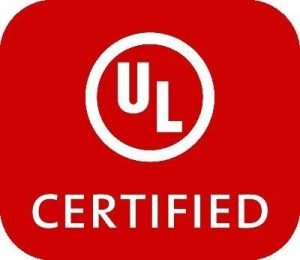BIS CERTIFICATION: UNDER ISI DOMESTIC MANUFACTURE
Introduction Of India Manufacture of ISI Certificate
In the realm of domestic manufacturing, ensuring the quality and compliance of products is of paramount importance. The ISI (Indian Standards Institute) plays a vital role by implementing the ISI Certification, a mark that signifies adherence to national standards and specifications. ISI Certification assures consumers that the product has undergone rigorous testing, meets essential quality benchmarks, and complies with the applicable Indian standards.
ISI Certification:
ISI Certification is a voluntary conformity assessment scheme operated by the Bureau of Indian Standards (BIS) under the ISI Act of 2016. It is a hallmark of quality, safety, and reliability for various products manufactured and sold in India. The certification process involves rigorous testing, inspection of manufacturing facilities, and evaluation of compliance with the relevant Indian standards.
Key Features:
1. Product Scope: The ISI Certification covers a wide range of products across multiple sectors, such as electrical appliances, mechanical equipment, automotive components, building materials, food products, and more. The certification ensures that these products meet the specified standards, ensuring consumer safety and product quality.
2. Compliance with Indian Standards: ISI Certification requires manufacturers to comply with the relevant Indian standards developed by the Bureau of Indian Standards. These standards outline the technical requirements, safety regulations, performance criteria, and quality benchmarks that products must meet. Compliance ensures that products meet consumers' expectations and adhere to recognized national standards.
3. Testing and Evaluation: The certification process involves thoroughly testing and evaluating the product in accredited laboratories. Samples are tested for various parameters to ensure compliance with the applicable Indian standards. Additionally, inspections are conducted at the manufacturing facility to assess quality control processes, production practices, and adherence to the prescribed standards.
4. Mark of Trust: The ISI Certification mark is affixed to products that meet the standards and pass the certification process. It is a visible symbol of quality, safety, and reliability for consumers. The mark enhances consumer confidence, assuring them that the product has been independently tested and certified by a recognized national standards body.
5. Consumer Protection: ISI Certification is vital in protecting consumers from substandard or unsafe products. By ensuring compliance with national standards, the certification scheme safeguards consumer interests, promotes fair trade practices, and contributes to society's overall well-being.
Benefits of ISI Certification:
- Enhanced Consumer Confidence: ISI Certification instills confidence in consumers, assuring them of the quality and safety of the certified products.
- Market Access and Acceptance: ISI Certification enables manufacturers to access a wider domestic and international market. It demonstrates compliance with recognized quality standards, thereby facilitating acceptance and marketability of the products.
- Compliance with Legal Requirements: ISI Certification ensures that manufacturers meet legal obligations related to product quality and safety as per the relevant Indian standards.
- Competitive Advantage: Certification provides a competitive edge for manufacturers by differentiating their products and establishing a quality reputation, attracting more customers and business opportunities.
- Consumer Awareness and Education: The ISI Certification scheme contributes to consumer awareness and education regarding quality standards, encouraging them to make informed choices while purchasing products.
The Registration Process For Indian (Domestic) Manufacturers Involves The Following Steps:
- Step: Submit a test request with a BIS & ISI-approved laboratory.
- Step: Submit samples according to BIS standards.
- Step: Once the test report is available, submit the registration on the BIS portal on behalf of the manufacturer and the Indian representative.
- Step: The registration department will then conduct a scrutiny of the submission.
- Step: Upon completion of the scrutiny, the department will provide an R number and grant a license.
Conclusion:
The ISI Certification scheme is crucial in promoting domestic manufacturing, ensuring product quality, and protecting consumer interests. By adhering to the applicable Indian standards, manufacturers can obtain the ISI Certification mark, which symbolizes their commitment to quality, safety, and compliance. The certification enhances consumer confidence and opens up new markets and business opportunities for manufacturers. Through the rigorous testing, evaluation, and certification process, ISI Certification empowers consumers to make informed decisions and strengthens the overall manufacturing ecosystem in India.
- Home
- About Us
-
Services
- BIS ISI Mark Certification
- BIS-CRS Certification
- ISI Domestic Manufacture
- EPR Plastic Waste
- EPR E-Waste
- EPR Registration
- EPR Battery Waste
- BIS FMCS Registration
- WMI Registration
- BIS ECO Mark Scheme
- BIS Certification for Footwear
- EMI-EMC Test
- RF Testing
- IP Rating Test
- TEC Approvals
- NABL Testing
- LM 79 & LM 80
- ROHS Approval
- CE Certificetion
- EPR Importance
- EPR For Tyres
- EPR For Used Oil
- TradeMark
- Copy Right
- WPC-ETA Approval
- BEE Registration
- FSSAI Registration
- Gem Registration
- BIS Certification for Toys
- Import Export License
- Custom Compliance
- LAB Setup and lab equipment
- UL Certification
- CDSCO Approvals
- Drug License
- NOC For Steel
- IMEI Registration
- ISO Certification
- Legal Metrology
- NSIC Registration
- Start-Up Registration
- Make in India Mark
- LMPC Registration
- CDSCO Registration
- Updates
- Gallery
- Clients
- Contact Us














































































